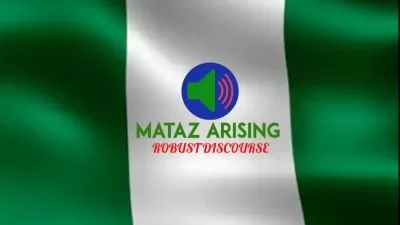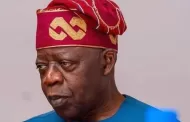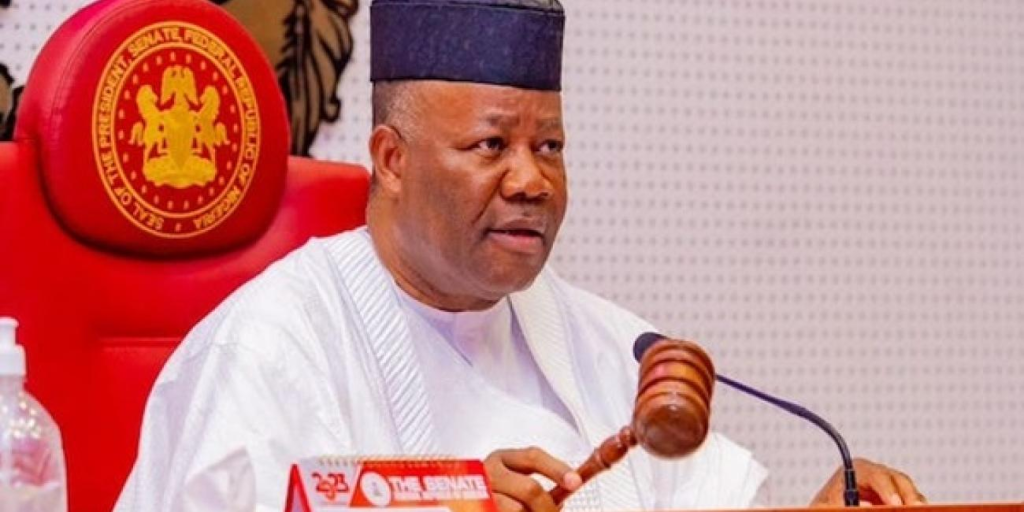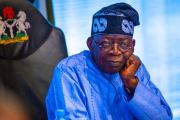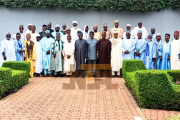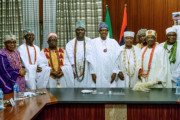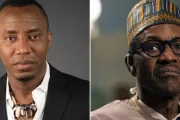By Farooq A. Kperogi
Twitter: @farooqkperogi
Many Nigerians tend to think the problem of terrorist bandits start and end with kidnappers. In today’s Saturday Tribune/Peoples Gazette column, I look at the people who might be arming and financing the bandits behind the scene but whose footprints we ignore. Enjoy:

On July 18, 2021, so-called bandits shot down an Alpha Jet belonging to the Nigerian Air Force on the boundary between Zamfara and Kaduna states. Then on October 7, 2021, the Wall Street Journal, whose news section is adjudged one of America’s most credible, got a scoop that the Nigerian Air Force paid N20 million to bandits to buy back “an antiaircraft gun” that the bandits had seized from the Nigerian military in a clash.
The antiaircraft gun, the paper said, “posed a threat to President Muhammadu Buhari, who had been planning to fly to his hometown….”
On October 20, 2021, the bandits, whom the Wall Street Journal says have “collaborators inside the army” and who are “better equipped with larger-capacity advanced weaponry than national security agencies,” detonated explosives on the Abuja-Kaduna rail tracks and caused the indefinite suspension of rail transportation between Abuja and Kaduna.
What has become transparently apparent in the last few months is that the plague of so-called Fulani herdsmen banditry is way deeper and more complex than we have persuaded ourselves to believe. The menace we self-deceptively and simplistically attenuate as mere “banditry” is nothing short of well-oiled, deep-rooted, well-practiced, and well-organized mercenary terrorism whose tentacles have spread to unthought-of social territories of the Nigerian society.
Early this month, I had a lengthy conversation with a well-placed Nigerian government official on a whole host of issues, including the escalating, never-ending scourge of mass abductions for ransom in vast swathes of the country. In the course of our conversation, he casually shared with me a disturbing story that, for me, strikes at the core of why terroristic banditry won’t go away anytime soon.
He was involved in negotiations for the release of abductees some months back. The multi-million-naira ransom paid to the “abductors,” he said, went through a tortuous chain of command that finally ended up with some armed, well-nourished, out-of-state individuals. In other words, although the kidnappers were bucolic Fulani, the people who finally received the ransom weren’t.
In any case, as most people know, most of the cattle that the Fulani herders rear don’t belong to them; they belong to wealthy city dwellers (and some prosperous rural folks) from all over Nigeria.
Well, the anecdote that the government official shared with me recalls a viral video of a “bandit” in one of the northwestern states swearing in Hausa that “bandits” aren’t independent actors, that they are armed and financed by well-placed people in the society who take advantage of their poverty and disaffiliation from mainstream society to recruit them.
To be clear, I am not by any means absolving Fulani herders from responsibility for kidnapping. I just want to transcend the surface on which we have dwelled for far too long.
I also connected the dots between what the government official told me and a message that trended in Nigerian social media circles in May 2019 about a woman who was threatened with abduction but given the option to pay N5 million into a bank account to avert her kidnap.
A portion of the narration is worth reproducing without authorial intervention: “She took it up. Went to the bank with some assistance from influential friends. They asked that the account be flagged…. Bank did checks. Bank said the account cannot be flagged else they will lose influential clients How so? The names attached to the account are powerful names. That the kidnap ring pays some top persons percentage from the ransome [sic] paid. She was advised to jejely goan [sic] pay her POTENTIAL KIDNAPPERS. I was speechless for over 5 minutes.”
If you think this is a made-up story, read Daily Trust’s July 28, 2021 story titled “Kidnappers in FCT Begin Collection Of Ransom Through Banks.” When a Mrs. Aminat Adewuyi was kidnapped in Niger State, the kidnappers threatened to slaughter her if her relatives didn’t deposit N5 million naira into an Access Bank account.
The amount was later scaled back. “The ransom payment slip, a copy of which was obtained by Daily Trust showed that Adewuyi’s husband paid N500,000 into an Access Bank account with number 1403762272 and the name Badawi Abba Enterprise,” the paper reported.
Also recall that late last month even the National Youth Service Corps advised youth corps members posted to abduction-prone roads like “Abuja-Kaduna, Abuja-Lokoja-Okene, or Aba-Port Harcourt” to let “family members, friends and colleagues to have someone on hand to pay off the ransom that could be demanded” in the event of their abduction. This piece of advice was frozen in a handbook distributed to corps members.
It’s easy to explain away the NYSC advice as merely an organization being pragmatic and making peace with the ever-present reality of mass abductions in the country. But the listless capitulation to mercenary terroristic bandits by almost all segments of the Nigerian government, including security outfits, points to high-profile complicity, in my opinion.
The Daily Nigerian reported on October 21 that security agencies had intercepted communication between “a notorious bandit” and his “associate.” “The report, dated October 19, 2021 and entitled ‘PLANNED ATTACK ON TRAIN AROUND RIJANA, KADUNA STATE,’ said the terrorists were heard discussing about the planned attack by Darul Salam terrorists in concert with two bandit kingpins, Danlami and Lawan (not real names),” the news site reported.
It quoted the security report to have said, “Baffa informed Bala that members of Darussalam (Boko Haram) in collaboration with bandits led by Danlami and Lawan are currently on their way to plant a bomb at a bridge on the railway in Rijana to hijack a moving train and kidnap the passengers. Baffa said he decided not to participate in the operation because it is risky but believed that DANLAMI and LAWAN will blow up the bridge.”
Why was the report, which the paper said was “circulated across security agencies,” ignored? Was this complicity, incompetence, or indifference? I am inclined to think it’s complicity, especially in light of the Wall Street Journal’s not-surprising revelation that mercenary terrorist bandits have “collaborators inside the army.”
Here are my own extrapolations based on the facts I’ve encountered these past few months. While uneducated, pastoral, semi-nomadic Fulani herders are the public face of mass abductions for ransom in the country, they are just branches of a tree whose roots are buried deep beneath the surface. The herders are mere expendable foot soldiers of people who have privileged connections to the government and the private sector.
Peasant, seminomadic Fulani herders who have lost their cattle have historically served as an inexhaustible pool of lumpen proletariat to conscript into all kinds of conflicts. In the early 1800s, for instance, they constituted a huge percentage of Afonja’s army in his fight against the Alaafin of Oyo. In “A Little New Light: Selected Historical Writings of Professor Abdullahi Smith,” the late Abdullahi Smith wrote that Fulani pastoralists who lost their cattle to tsetse fly bites in Yoruba land and “had nothing to lose” became Afonja’s mercenaries.
The domination of abduction for ransom by Fulani pastoralists who have lost their cattle seems to me like the recrudescence of what happened in the 1800s—and at other historical epochs. Killing the abductors will do nothing to stop the problem because they are merely the branches of a tree. You don’t kill a tree by cutting off its branches because new branches will sprout in time.
You kill a tree by uprooting it. That means identifying the funders and real beneficiaries of mass abductions in the country. From the information I am privy to, they are elites who are not necessarily Fulani. They are a pan-Nigerian gang of ruthless buccaneers who are united by rapaciousness and vileness.
But instead of confronting this grave existential threat to Nigeria, Abubakar Malami, the Attorney General of the Federation and Minister of Justice, is obsessed with blabbering about who the “sponsors” of Sunday Igboho and Nnamdi Kanu are.
This is the same guy who refused to name and identify people who have been exposed by the United Arab Emirates as sponsors of Boko Haram terrorists because, according to him, “Naming and shaming of suspects is not embarked upon as a policy by the federal Government out of sheer respect [for] the constitutional rights of Nigerians relating to presumption of innocence.”
Naming and shaming of sponsors of terrorism is unconstitutional but the naming and shaming of the “sponsors” of Nnamdi Kanu and Sunday Igboho isn’t. That is all you need to know for why mercenary terroristic banditry will endure for as long as incompetent hypocrites like Malami hold and control the levers of government.
- President Biden signs bill to ban TikTok from operations
- UK: Abusive husband beat his wife to death with son’s skateboard while police waited outside
- One arrested as Nigeria’s Okechukwu Iweha is stabbed to death in London
- Nigeria’s government to sell off DisCos managed by banks, AMCON July
- Abuja Chinese supermarket where Nigerians are not allowed to shop sealed
JOIN OUR MaTaZ ArIsInG COMMUNITY!
SUBSCRIBE TO OUR NEWSLETTER NOW
Our newsletter gives you access to a curated selection of the most important stories daily.
Eyewitness? Submit your stories now via:
Email: ad@matazarising.com
TEXT AD: To advertise here – Email ad@matazarising.com

